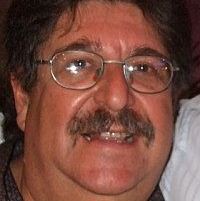
SA

Hank Greenberg honoured, 80 years on
JACK MILNER
For American Jewry it was baseball great Hank Greenberg’s decision to play for his team, the Detroit Tigers, on Rosh Hashanah, and then refuse to play 10 days later – on Yom Kippur. The story is legendary and I have written about it before, but it is now 80 years since Greenberg made those two decisions and the Detroit Tigers took it upon themselves to commemorate the occasion.
There has also been a new book released on Greenberg that has given a lot more detail as to what happened on September 10, 1934 and September 19 the same year.
The book is called “Hank Greenberg: The Hero of Heroes”, by John Rosengren and it explains how difficult both decisions were for Greenberg.
In September 1934, many in Detroit’s Jewish community were anxious. It was the Great Depression and Detroit was home to two of America’s well-known anti-Semites, Henry Ford of Dearborn and Father Charles Coughlin of Royal Oak, both of whom had national audiences for their rants against Jews. To make matters worse, in Europe the Nazis were on the rise…
Greenberg faced a lot of anti-Jewish slurs and insults, both from fans and opposing players. The insults were a constant part of his career. Except for Jackie Robinson, there was nobody in the history of the game who took more abuse than Greenberg, his teammate, Birdie Tebbetts, recalled.
There was a belief that pitchers were deliberately having a go at him in 1938 because he was Jewish and he closed in at Babe Ruth’s home run record.
But Greenberg ignored most of the racial insults and taunts and just focused on his game. He also never used his Jewish heritage as an excuse for any of his failures. He also found support from many, including the Detroit Free Press, who ran a headline in Hebrew wishing him a happy New Year the day before the game on Rosh Hashanah in 1934.
That Rosh Hashanah game was massive for the Tigers, as they needed to win it to qualify for the World Series. The game was about to start, but Greenberg still had not decided whether he was going to play or not.
“I don’t know what to do,” the son of Jewish immigrants said in the locker room to the third baseman as his teammates got ready. Greenberg had been flooded with advice from Jews and rabbis across the country, some telling him to honour his faith and sit out the game, while others said he should help his team, Rosengren reveals in his book. In the end, Greenberg did play, and belted two home runs to beat the Boston Red Sox 2-1.
Nine days later, Greenberg sat out for Yom Kippur, though by then the Tigers had almost clinched the playoffs. The Tigers lost that day.
To celebrate the historic occasion last week, the Detroit Tigers hosted its first Jewish Heritage Day, handing out plaques recalling how Greenberg helped the Tigers reach the World Series in 1934.
Rabbi Elliot Pachter of Congregation B’nai Moshe of West Bloomfield, threw out the ceremonial first pitch on September 14, and Greenberg’s accomplishments were announced as videos of him were displayed on the screen at Comerica Park.
The legacy of Greenberg is that “we are proud to be American and Jewish at the same time”, Pachter said. “We don’t have to give up one for the other. We can take pride in both cultures.”
Greenberg’s decision not to play on Yom Kippur has become part of the narrative of Jewish-American identity for many in metro Detroit. Eighty years later the Detroit climate has changed, with Greenberg having played a role in that, say writers and Jewish leaders. The CEO and President of Ford Motor Co, founded by Henry Ford, is now Mark Fields, who is Jewish.
Tigers manager Brad Ausmus also is Jewish, as is their second baseman, Ian Kinsler. Ironically Kinsler belted a two-run home run to put the Tigers ahead on September 14, the same game that was honoured as Jewish Heritage Day by the Tigers.
Before the game started on September 10, 1934, Greenberg went to Congregation Shaarey Zedek in Detroit. He prayed and tried to focus on his religious duties, but fans couldn’t help but stare at him, wondering whether he was going to play.
When Greenberg decided to play and end up hitting his two home runs, fans and newspapers in Detroit across the US cheered him. But Greenberg was conflicted.
“I hope I did the right thing,” he said later, according to Rosengren’s book. “Maybe I shouldn’t have played. It’s a sacred day. There wasn’t any way of getting a dispensation or anything… I got thinking about the team, and I didn’t want to lay down on the team. But it’s on my conscience.
“I caught hell from my fellow parishioners; I caught hell from some rabbis.”





Chutzpah
October 1, 2014 at 12:48 pm
‘
Interesting. Should Tottenham Hotspurs be playing on Yom Kippur this year, or rather will a good portion of the ground be empty? I know Avram Grant was not on the bench one Yom Kippur and Ronnie Rosenthal did not play also, in his playing days. However Jonathan Kaplan was a linesman during the World cup on Yom Kippur eve in France. Does anyone know of other “stay
aways”?
‘
asher
October 3, 2014 at 8:40 pm
‘Springbok rugby player Syd Nomis did not play for Transvaal on Rosh Hashana OR Yom Kippur. RH fell on a Saturday 1969-1971’